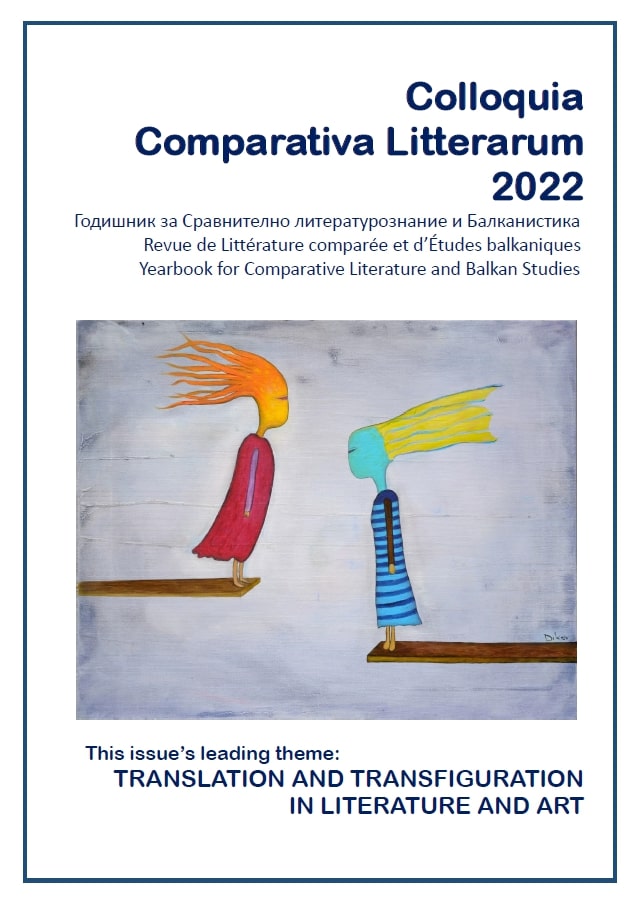Juliusz Słowacki's Notebook from His Travels to Greece and the East as a Romantic Open and Syncretic Work. Translating a Journey into Poetry
Juliusz Słowacki's Notebook from His Travels to Greece and the East as a Romantic Open and Syncretic Work. Translating a Journey into Poetry
Author(s): Maria Kalinowska, Ewa ŁUKASZYKSubject(s): Language and Literature Studies, Literary Texts, Poetry, Studies of Literature, Polish Literature
Published by: Софийски университет »Св. Климент Охридски«
Keywords: Travel writing; Romanticism; Polish poetry; multimodal expression; transcultural dimension
Summary/Abstract: Juliusz Słowacki (1809-1849), together with Adam Mickiewicz, is one of the most important Polish Romantic poets. After the failure of the November Uprising (1830-1831), he lived in Western Europe as a political émigré. He was politically involved in the cause for Polish independence, while also being a profoundly European Romantic poet. He has been hugely influential on Polish literature, as well as on the national imagination of subsequent generations. This article, resulting from a research and editing project dedicated to Słowacki’s travel notebook (raptularz), characterises the complex, syncretic nature of the Romanic oeuvre, unifying travel sketches and poetry writing into a highly personal, open whole. The poetry that comes into being during the poet's travel to Greece and the Orient is derived from a holistic experience of places and events. The scholarly work on the manuscript, its material aspect, and the implications of the encounter with the world of which it testifies opens a series of editing and research questions. The appreciation of the Romantic travel as an experience that finds a multimodal expression requires a transdisciplinary approach. On the other hand, Słowacki stands apart from other Polish writers of his time, who focused on consolidating the support for the cause of national independence; as a representative of a European margin, without an independent homeland, he occupies a distinct position in relation to other Oriental travellers; therefore, his work requires a transcultural approach.
Journal: Colloquia Comparativa Litterarum
- Issue Year: 8/2022
- Issue No: 1
- Page Range: 41-58
- Page Count: 18
- Language: English

